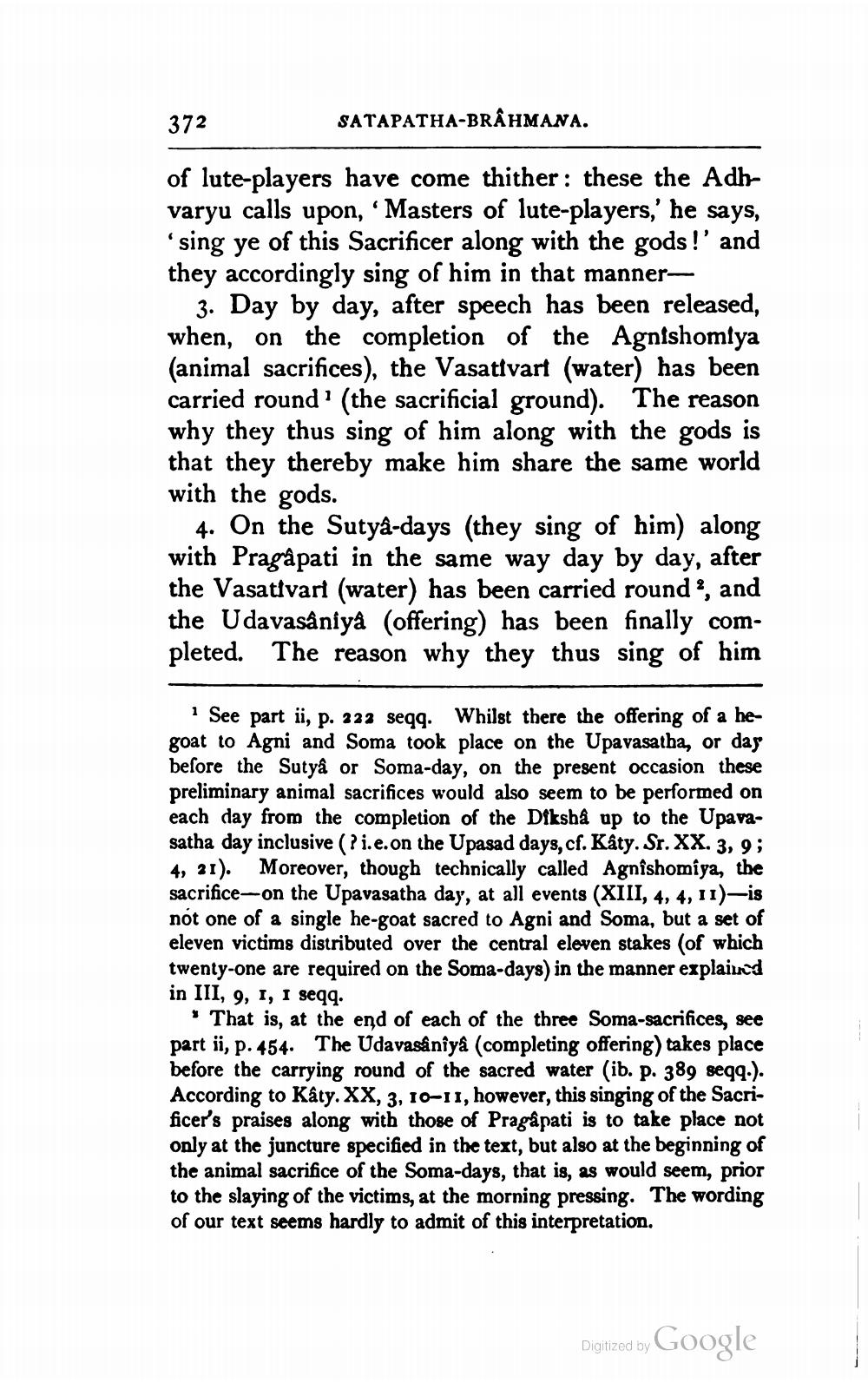________________
372
SATAPATHA-BRAHMANA.
of lute-players have come thither: these the Adhvaryu calls upon, 'Masters of lute-players,' he says, sing ye of this Sacrificer along with the gods!' and they accordingly sing of him in that manner
(
3. Day by day, after speech has been released, when, on the completion of the Agnishomiya (animal sacrifices), the Vasativart (water) has been carried round' (the sacrificial ground). The reason why they thus sing of him along with the gods is that they thereby make him share the same world with the gods.
4. On the Sutyâ-days (they sing of him) along with Pragâpati in the same way day by day, after the Vasativart (water) has been carried round, and the Udavasânîyâ (offering) has been finally completed. The reason why they thus sing of him
1 See part ii, p. 222 seqq. Whilst there the offering of a hegoat to Agni and Soma took place on the Upavasatha, or day before the Sutyâ or Soma-day, on the present occasion these preliminary animal sacrifices would also seem to be performed on each day from the completion of the Dikshâ up to the Upavasatha day inclusive (?i.e.on the Upasad days, cf. Kâty. Sr. XX. 3, 9; 4, 21). Moreover, though technically called Agnîshomiya, the sacrifice-on the Upavasatha day, at all events (XIII, 4, 4, 11)-is not one of a single he-goat sacred to Agni and Soma, but a set of eleven victims distributed over the central eleven stakes (of which twenty-one are required on the Soma-days) in the manner explained in III, 9, I, I seqq.
That is, at the end of each of the three Soma-sacrifices, see part ii, p. 454. The Udavasânîya (completing offering) takes place before the carrying round of the sacred water (ib. p. 389 seqq.). According to Kâty. XX, 3, 10-11, however, this singing of the Sacrificer's praises along with those of Pragâpati is to take place not only at the juncture specified in the text, but also at the beginning of the animal sacrifice of the Soma-days, that is, as would seem, prior to the slaying of the victims, at the morning pressing. The wording of our text seems hardly to admit of this interpretation.
Digitized by
Google




